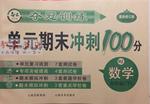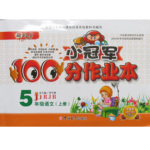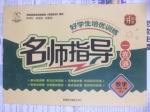题目内容
Be calm, Madam, can you remember _____you had your mobile phone stolen?
| A.when was it that | B.that it was when |
| C.where it was that | D.it was where that |
C
解析这题考查强调句的特殊问句做宾语从句的用法,因为是强调句的特殊疑问句,所以排除B和D,又因为宾语从句的语序是陈述句的语序,所以选C。句意是:你记得手机是在哪丢的吗?

 夺冠训练单元期末冲刺100分系列答案
夺冠训练单元期末冲刺100分系列答案 新思维小冠军100分作业本系列答案
新思维小冠军100分作业本系列答案 名师指导一卷通系列答案
名师指导一卷通系列答案He came into the room to shut the windows while we were still in bed and I saw he looked ill. He was shivering, his face was white, and he walked slowly as though it ached to move.
“What's the matter, Schatz?”
“I've got a headache.”
“You better go back to bed.”
“No. I'm all right.”
“You go to bed. I'll see you when I'm dressed.”
But when I came downstairs he was dressed, sitting by the fire, looking a very sick and miserable boy of nine years. When I put my hand on his forehead I knew he had a fever.
“You go up to bed,” I said, “You're sick.”
“I'm all right,” he said.
When the doctor came he took the boy's temperature.
“What's is it?” I asked him.
“One hundred and two.”
Downstairs, the doctor left three different medicines in different colored capsules with instructions for giving them. One was to bring down the fever, another a purgative(泻药), the third to overcome an acid condition. The germs of influenza(流感)can only exist in an acid condition, he explained. He seemed to know all about influenza and said there was nothing to worry about if the fever did not go above one hundred and four degrees. This was a light epidemic(传染病;传染性的) of flu and there was no danger if you avoided pneumonia(肺炎).
Back in the room I wrote the boy's temperature down and made a note of the time to give the various capsules.
“Do you want me to read to you?”
“All right. If you want to, “ said the boy. His face was very white and there were dark areas under his eyes. He lay still in the bed and seemed very detached(超然的;冷漠的)from what was going on.
I read aloud from Howard Pyle's Book of Pirates(海盗);but I could see he was not following what I was reading.
“How do you feel, Schatz?” I asked him.
“Just the same, so far,” he said.
I sat at the foot of the bed and read to myself while I waited for it to be time to give another capsule. It would have been natural for him to go to sleep, but when I looked up he was looking at the foot of the bed, looking very strangely.
“Why don't you try to sleep? I'll wake you up for the medicine.”
“I'd rather stay awake.”
After a while he said to me, “You don't have to stay in here with me, Papa, if it bothers you.”
“It doesn't bother me.”
“No, I mean you don't have to stay if it's going to bother you.”
I thought perhaps he was a little lightheaded and after giving him the prescribed capsules at eleven o'clock I went out with my gun and the young hunting dog….I killed two quail(鹌鹑), and missed five, and started back pleased to have found a covey of quail close to the house and happy there were so many left to find on another day.
At the house they said the boy had refused to let anyone come into the room.
“You can't come in,” he said. “You mustn't get what I have.”
I went up to him and found him in exactly the position I had left him, white-faced, but with the tops of his cheeks flushed(发红)by the fever, staring still, as he had stared, at the foot of the bed.
I took his temperature.
“What is it?”
“Something like a hundred,” I said. It was one hundred and two and four tenths.
“It was a hundred and two,” he said.
“Who said so?”
“The doctor.”
“Your temperature is all right,” I said. “It's nothing to worry about.”
“I don't worry,” he said, “but I can't keep from thinking.”
“Don't think,” I said. “Just take it easy.”
“I'm taking it easy,” he said and looked straight ahead, He was evidently holding tight onto himself about something.
“Take this with water.”
“Do you think it will do any good?”
“Of course it will.”
I sat down and opened the Pirate book and began to read, but I could see he was not following, so I stopped.
“About what time do you think I'm going to die?” he asked.
“What?”
“About how long will it be before I die?”
“You aren't going to die. What's the matter with you? “
“Oh, yes, I am, I heard him say a hundred and two.”
“People don't die with a fever of one hundred and two. That's a silly way to talk.”
“I know they do. At school in France the boys told me you can't live with forty-four degrees. I've got a hundred and two.”
He had been waiting to die all day, ever since nine o'clock in the morning.
“You poor Schatz,” I said. “Poor old Schatz. It's like miles and kilometers. You aren't going to die. That's different thermometer. On that thermometer thirty-seven is normal. On this kind it's ninety-eight.”
“Are you sure?”
“Absolutely,” I said, “It's like miles and kilometers. You know, like how many kilometers we make when we do seventy miles in the car?”
“Oh,” he said.
But his gaze at the foot of the bed relaxed slowly. The hold over himself relaxed too, finally, and the next day it was very slack(松驰的) and he cried very easily at little things that were of no importance.
【小题1】The author writes about the doctor’s visit in order to _____.
| A.show the doctor’s knowledge about influenza and its treatment |
| B.show the boy’s illness was quite serious |
| C.create a situation of misunderstanding around which to build a story |
| D.show the father was very much concerned about the boy’s illness |
| A.the boy’s high temperature |
| B.the father giving the medicine to the boy |
| C.the father staying with the boy |
| D.the boy’s death |
| A.early in the afternoon |
| B.close to evening |
| C.at noon |
| D.late in the morning |
| A.he did not want to be a bother to others |
| B.he wanted to recover quickly so that he could go hunting with his father |
| C.he was afraid that he would die if he lost control over himself |
| D.he thought he was going to die and he must show courage in the face of death |
| A.he couldn’t control his emotions when he finally relaxed |
| B.his father would go out hunting without him if he didn’t cry |
| C.something went wrong with his brain after the fever |
| D.he often complained about unimportant things as a spoiled boy |
| A.death is something beyond a child’s comprehension |
| B.to be calm and controlled in the face of death is a mark of courage |
| C.misunderstanding can occur even between father and son |
| D.misunderstanding can sometimes lead to an unexpected effect |
He came into the room to shut the windows while we were still in bed and I saw he looked ill. He was shivering, his face was white, and he walked slowly as though it ached to move.
"What's the matter, Schatz?"
"I've got a headache."
"You better go back to bed."
"No. I'm all right."
"You go to bed. I'll see you when I'm dressed."
But when I came downstairs he was dressed, sitting by the fire, looking a very sick and miserable boy of nine years. When I put my hand on his forehead I knew he had a fever.
"You go up to bed," I said, "You're sick."
"I'm all right," he said.
When the doctor came he took the boy's temperature.
"What's is it?" I asked him.
"One hundred and two."
Downstairs, the doctor left three different medicines in different colored capsules(胶囊) with instructions for giving them. One was to bring down the fever, another a purgative(泻药), the third to overcome an acid condition. The germs of influenza(流感)can only exist in an acid condition, he explained. He seemed to know all about influenza and said there was nothing to worry about if the fever did not go above one hundred and four degrees. This was a light epidemic(传染病;传染性的) of flu and there was no danger if you avoided pneumonia(肺炎).
Back in the room I wrote the boy's temperature down and made a note of the time to give the various capsules.
"Do you want me to read to you?"
"All right. If you want to, " said the boy. His face was very white and there were dark areas under his eyes. He lay still in the bed and seemed very detached(超然的;冷漠的)from what was going on.
I read aloud from Howard Pyle's Book of Pirates(海盗);but I could see he was not following what I was reading.
"How do you feel, Schatz?" I asked him.
"Just the same, so far," he said.
I sat at the foot of the bed and read to myself while I waited for it to be time to give another capsule. It would have been natural for him to go to sleep, but when I looked up he was looking at the foot of the bed, looking very strangely.
"Why don't you try to sleep? I'll wake you up for the medicine."
"I'd rather stay awake."
After a while he said to me, "You don't have to stay in here with me, Papa, if it bothers you."
"It doesn't bother me."
"No, I mean you don't have to stay if it's going to bother you."
I thought perhaps he was a little lightheaded and after giving him the prescribed capsules at eleven o'clock I went out with my gun and the young hunting dog….I killed two quail(鹌鹑), and missed five, and started back pleased to have found a covey of quail close to the house and happy there were so many left to find on another day.
At the house they said the boy had refused to let anyone come into the room.
"You can't come in," he said. "You mustn't get what I have."
I went up to him and found him in exactly the position I had left him, white-faced, but with the tops of his cheeks flushed(发红)by the fever, staring still, as he had stared, at the foot of the bed.
I took his temperature.
"What is it?"
"Something like a hundred," I said. It was one hundred and two and four tenths.
"It was a hundred and two," he said.
"Who said so?"
"The doctor."
"Your temperature is all right," I said. "It's nothing to worry about."
"I don't worry," he said, "but I can't keep from thinking."
"Don't think," I said. "Just take it easy."
"I'm taking it easy," he said and looked straight ahead, He was evidently holding tight onto himself about something.
"Take this with water."
"Do you think it will do any good?"
"Of course it will."
I sat down and opened the Pirate book and began to read, but I could see he was not following, so I stopped.
"About what time do you think I'm going to die?" he asked.
"What?"
"About how long will it be before I die?"
"You aren't going to die. What's the matter with you? "
"Oh, yes, I am, I heard him say a hundred and two."
"People don't die with a fever of one hundred and two. That's a silly way to talk."
"I know they do. At school in France the boys told me you can't live with forty-four degrees. I've got a hundred and two."
He had been waiting to die all day, ever since nine o'clock in the morning.
"You poor Schatz," I said. "Poor old Schatz. It's like miles and kilometers. You aren't going to die. That's different thermometer(温度计). On that thermometer thirty-seven is normal. On this kind it's ninety-eight."
"Are you sure?"
"Absolutely," I said, "It's like miles and kilometers. You know, like how many kilometers we make when we do seventy miles in the car?"
"Oh," he said.
But his gaze at the foot of the bed relaxed slowly. The hold over himself relaxed too, finally, and the next day it was very slack(松驰的) and he cried very easily at little things that were of no importance.
1.The author writes about the doctor’s visit in order to _____.
A. show the doctor’s knowledge about influenza and its treatment
B. show the boy’s illness was quite serious
C. create a situation of misunderstanding around which to build a story
D. show the father was very much concerned about the boy’s illness
2.The pronoun “it” in “Papa, if it bothers you” (line 41) refers to _____.
A. the boy’s high temperature
B. the father giving the medicine to the boy
C. the father staying with the boy
D. the boy’s death
3.It can be inferred from the story that it is _____ by the time the father gets home from hunting.
A. early in the afternoon B. close to evening
C. at noon D. late in the morning
4.From the story we know that the boy kept tight control over himself because _____.
A. he did not want to be a bother to others
B. he wanted to recover quickly so that he could go hunting with his father
C. he was afraid that he would die if he lost control over himself
D. he thought he was going to die and he must show courage in the face of death
5.That the boy cried very easily at little things of no importance the next day suggests that _____.
A. he couldn’t control his emotions when he finally relaxed
B. his father would go out hunting without him if he didn’t cry
C. something went wrong with his brain after the fever
D. he often complained about unimportant things as a spoiled boy
6.The theme of the story is _____.
A. death is something beyond a child’s comprehension
B. to be calm and controlled in the face of death is a mark of courage
C. misunderstanding can occur even between father and son
D. misunderstanding can sometimes lead to an unexpected effect